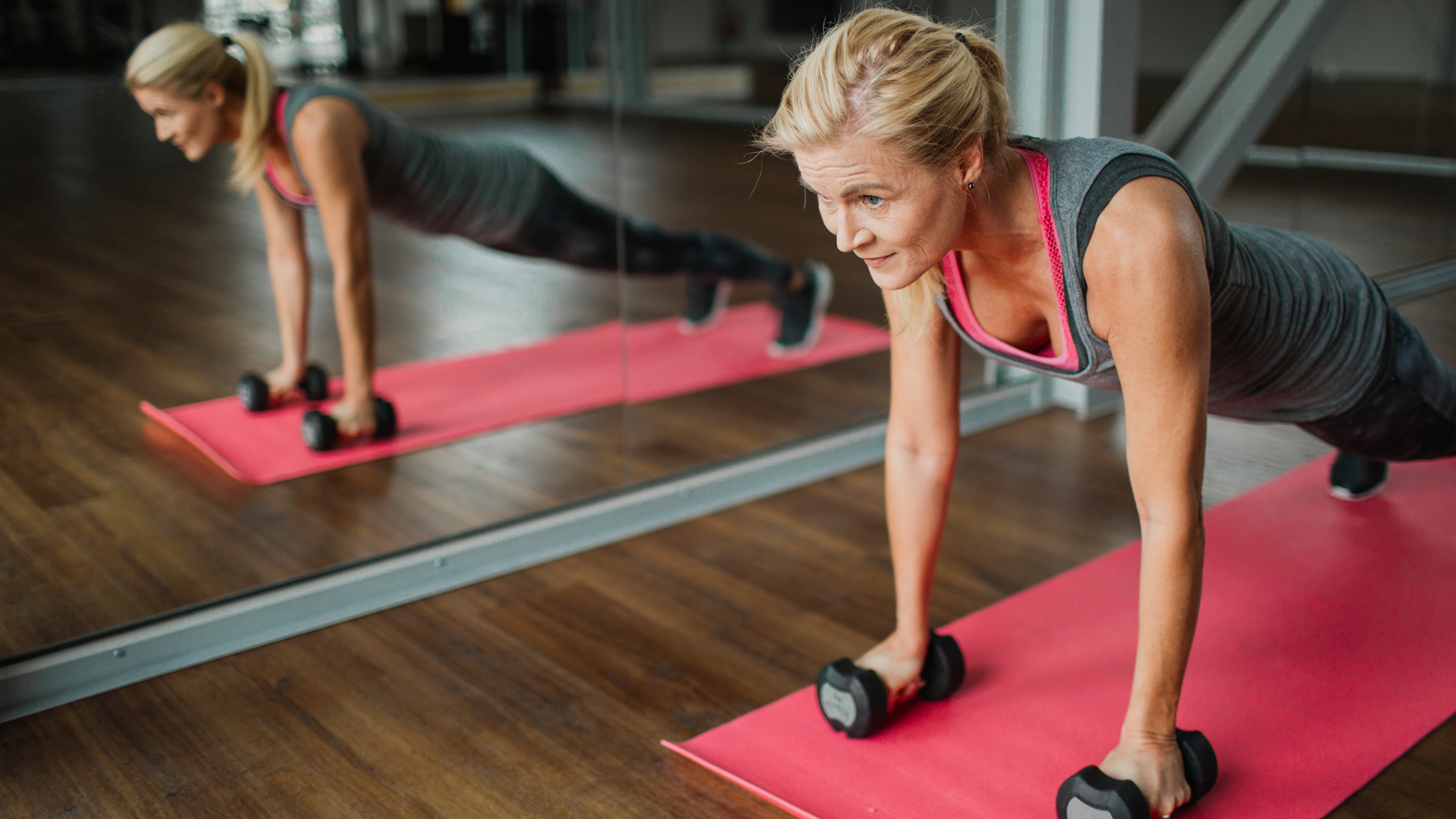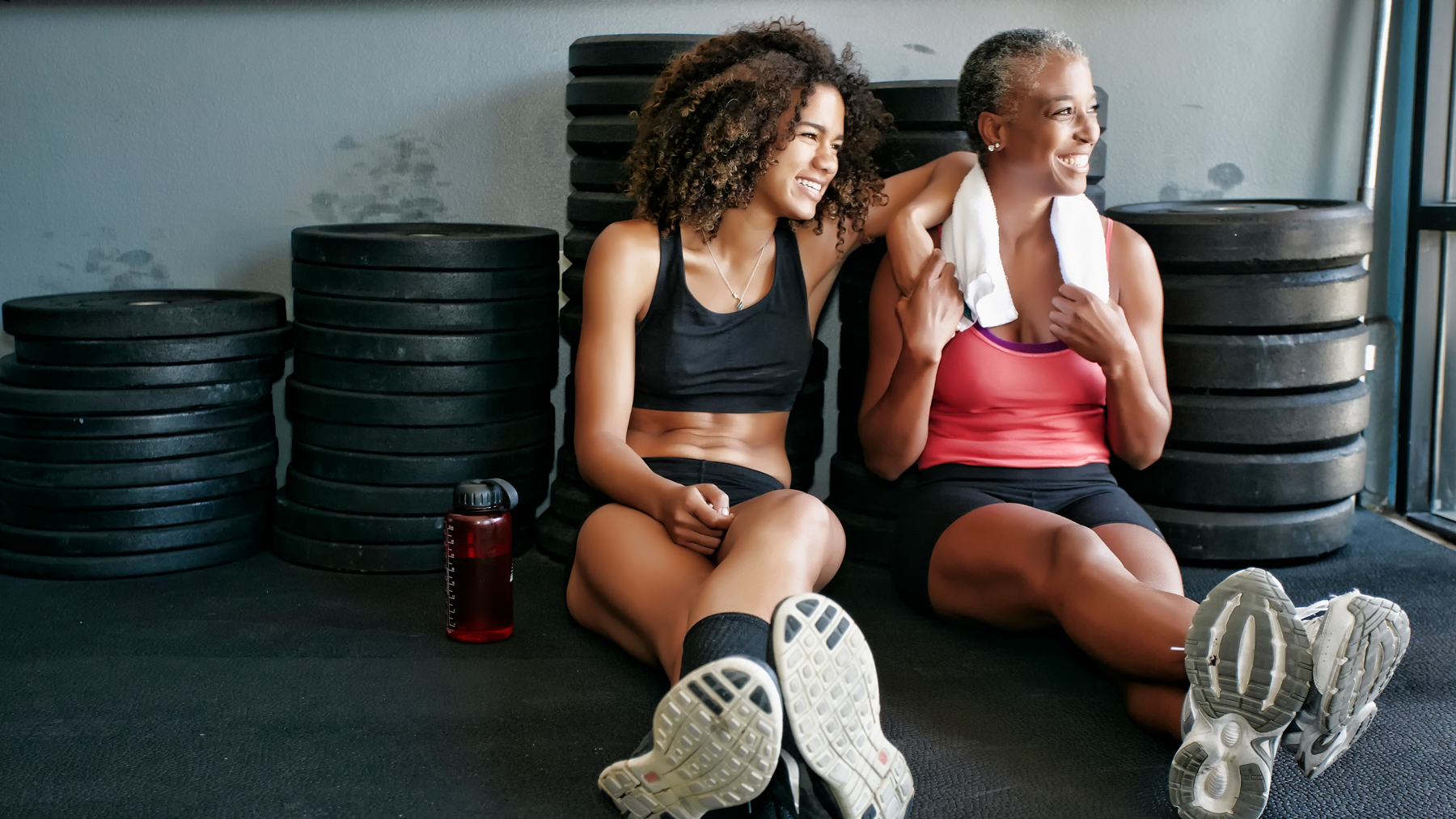How weight training can help reduce your postmenopause hot flushes
Research reveals resistance training three times a week can help minimise hot flushes experienced postmenopause


Start your week with achievable workout ideas, health tips and wellbeing advice in your inbox.
You are now subscribed
Your newsletter sign-up was successful
Hot flushes can be a discomforting and inconvenient experience faced by many menopausal and postmenopausal women. Science has suggested exercise as a way of managing hot flushes, more specifically one study reveals why weight training may be key to reducing this common symptom.
Menopause of course is a natural bodily process and cannot be cured as such, but there are ways to try to better control the hormonal changes happening in your body. Some women find taking the best menopause supplements or the best vitamins for women over 50 of benefit as taking a tablet doesn't require big lifestyle changes.
However, a study carried out by Swedish researchers at Linköping University in Sweden found that hot flushes among postmenopausal women were almost halved after completing a weight training program.
The research team recruited a group of postmenopausal women who suffer from at least four or more moderate or severe hot flushes (or night sweats) a day and had not received any other form of hot flush treatment two months prior to this test.
Each woman took part in a form of resistance training three times a week, where they had to complete eight exercises of 8-12 reps in two sets (taking two minutes rest between each set). The weight loads were assigned individually from maximum strength tests.

The program lasted 15 weeks and each week included six exercises performed on seated resistance machines like the chest press, leg press and lateral pull down machine.
Meanwhile, the other two resistance exercises were bodyweight based such as crunches and back raises. Take a look at these best at home chest workouts if you would like to try more bodyweight workouts at home.
Start your week with achievable workout ideas, health tips and wellbeing advice in your inbox.
The research team discovered in the study results that moderate and severe hot flushes had decreased by 44.8% for the women who completed the 15-week weight training program.
Additionally, this 2016 study focusing on cardio exercise training for 16 weeks discovered a similar outcome, also seeing reductions in hot flush frequency.
Research in this area theorizes that the release of something known as endogenous opioids during exercise impacts the thermoregulatory centre, lowering hot flushes for postmenopausal women.
The authors of the weight training study think that exercise performed at a certain intensity could be most effective at reducing hot flushes. This resistance training was completed with high loads which could have led to such a fast decline in hot flushes.
If you don't fancy joining a gym but want to give resistance training a shot you can get yourself a best adjustable dumbbell that provides multiple weights in one.
Jessica is an experienced fitness writer with a passion for running. Her career in journalism began in local news and she holds a Masters in journalism. Jessica has previously written for Runners World, penning news and features on fitness, sportswear and nutrition.
When she isn't writing up news and features for Fit&Well covering topics ranging from muscle building, to yoga, to female health and so on, she will be outdoors somewhere, testing out the latest fitness equipment and accessories to help others find top products for their own fitness journeys. Her testing pairs up nicely with her love for running. She recently branched out to running 10Ks and is trying to improve her time before moving on to larger races. Jessica also enjoys building on her strength in the gym and is a believer in health and wellness beginning in the kitchen. She shares all of this on her running Instagram account @jessrunshere which she uses for accountability and for connecting with like-minded fitness lovers.
